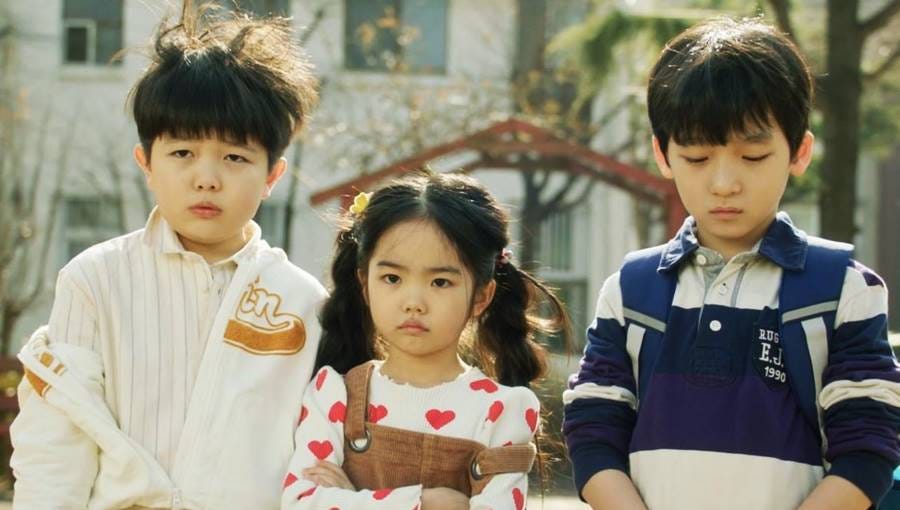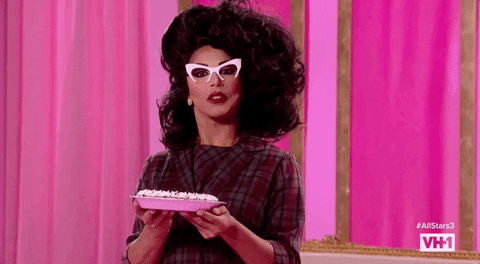조립식 가족
☆☆☆☆
Kim San-ha (played by Hwang In-youp)
Yoon Ju-won (played by Jung Chae-yeon)
Kang Hae-jun (played by Bae Hyun-sung)
↑Note: Korean names denote the surname followed by the given name.
Like many K-dramas where child actors are introduced (e.g. "The Moon That Embraces the Sun"), I have a difficult time letting their stories go when they are replaced by adults portraying them a decade or more down the line. Such was the case in "Family By Choice," where the tiny moppets portraying Ju-won, San-ha and Hae-jun were so cute, feisty and memorable.
Most of the elements that I want to discuss are spoilers. So let me start off with an excerpt from my Teen Vogue article about the best K-dramas of 2024:
If there’s one thing this K-drama gets across, it’s that keeping secrets from children about their own history is never the way to go. This lovely slice-of-life series addresses what makes a family. Three biologically unrelated children are motherless. Ju-won (Jung Chae-yeon) can’t remember her mom, who died when she was young. But San-ha (Hwang In-youp) and Hae-jun (Bae Hyun-sung) remember the mothers who abandoned them all too well. Ju-won’s dad takes in Hae-jun and becomes his de facto parent, while San-ha lives one floor up in the apartment complex with his father. The children are each other’s fearless ride-or-die best friends. Eventually, one of the “brothers” pursues a romantic relationship with Ju-won, which doesn’t go over well with the other “sibling.” The scenario is handled with care and sensitivity, giving the characters space to grieve and reconcile their newfound dynamics. (Viki)
I'll write more in the Spoiler Alert below.
Airdates: Sixteen episodes (ranging from 60- to 70-minutes each) aired on JTBC from October 9 through November 27, 2024. (I watched this on Viki.)
Spoiler Alert: The adults keep so many secrets from their children that when the latter overhear their conversations — and they always do — they are shocked.
For instance, Hae-jun grew up thinking that his father had died when he was born. Surprise! He’s very much alive! When his mother promises to come back for him, but doesn’t. He doesn’t know why. His aunt does. And eventually so does Ju-won’s dad, who has become his de facto dad (even though he never officially adopted the boy). Hae-jun grows up thinking his mom had abandoned him, when in reality, she was trying to spare him the stigma of having a mother who had been in prison. (Near the end of the series, she confesses that she killed someone and was locked away for about 10 years. Even though it wasn’t her fault, the fact that she had taken a life was a liability she didn’t want to inflict on her son. She felt he would be better off without a mother than one like her.)
Meanwhile, San-ha lives with the guilt of knowing that his younger sister died while left in his care. Never mind that he was only eight years old and that neither parent was at home. His father is a police officer, so it’s likely he was at work when the little girl had an allergic reaction to something she ate. But what of his mother? Where was she? There was no mention of her working outside the home. So why wasn’t she at home taking care of the children?
Assuming that the family had financial issues that required both parents to work outside the home, there is still no legitimate reason for leaving children that young at home alone. And then to place the blame on San-ha for the next decade is all kinds of wrong. While the mother (played by Kim Hye-eun) was vile in every interaction with him, the kindly father (portrayed by Choi Moo-sung) wasn’t guilt-free either. He is an adult. When his soon to be ex-wife punished San-ha with non stop accusations, he should’ve stood up for his son, rather than letting her traumatize the boy.
It’s not until San-ha is 18 that his father tells him that his sister’s death wasn’t his fault.
By now, San-ha's mother is remarried to a doctor and they have a daughter together. Instead of having pity for the boy and reflecting on how his daughter abandoned her only son, his maternal grandmother calls him to brag about how well her daughter (San-ha’s mom) is doing with her new family. Clearly, the women on his mom’s side of the family are missing a sensitivity chip.
Circling back to Hae-jun, he grew up being told by his maternal aunt that Ju-won’s father (Choi Won-young) has done their family a favor by taking him in. As such, she advises him to not take up too much space. Essentially, she told the shy child to walk on pins and needles and be grateful for having a place to stay. In reality, shouldn’t she be the one who’s grateful? Doesn’t family lineage dictate that she’s the one who should be taking care of her nephew?
But it’s just not his aunt telling him to be grateful. The customers at the restaurant that Ju-won’s dad owns tell him the same thing — you need to work off your debt to this family by working at the restaurant. Don’t be a burden for the man who took you in and clothed you. You’re not a real son and shouldn’t expect the same kind of treatment that children with parents get.
As expected, Ju-won and one of the boys fall in love. Thankfully, it wasn’t with Ha-jun, who has been living at her house as a sibling. She ends up with San-ha, who had lived upstairs with his father. The children had grown up together like the Three Musketeers. However, what left Ha-jun angry and hurt was that his best friends had kept their relationship a secret from him. And for a boy who had been abandoned, that felt like a punch in the gut.
In the end, there is a marriage, not between San-ha and Ju-won, but between Jun-won’s father and Ha-jun’s mother, who had celebrated one blind date before her disappearance.
Age confusion: Though South Korea technically scrapped “Korean age” — which can be one- to two-years older than their international age (or how old they are based on their birthday) — many Koreans still use it. For instance, on a recent episode of “Running Man,” the cast members were discussing how older people who don’t want to regarded as old use international age, while younger Koreans still use Korean age.
And here, the characters’ ages flip and flop depending on who’s talking.
Hae-jun’s biological father tells him that he will be an adult next year, which means that the boy is 18, since 19-year-olds are considered adults in South Korea. But earlier in the show, Ju-won’s dad referred to him as being 19 already. In episode three, Ju-won repeatedly says that Hae-jun is 십구 — which literally translates to 10 and 9, which is how Koreans says 19. This kind of age discrepancy is one reason why Koreans will ask each other what year they were born. That way, there is no ambiguity as to whether they are using Korean or international age.
And for those who are confused about how old the children are for the bulk of the show, Hae-jun and San-ha are both high school seniors. And Ju-won is freshman. (Note: While South Korean students graduate at the same age as their U.S. counterparts — usually between 17 to 19 — high school is only three years in Korea.)
So when the dialogue says that Ju-won turned 18 on April 27, 2014, but graduated from high school two years later shortly before she turned 20, viewers may be wondering, “Why is she so old if she didn’t take time off from school?” It’s likely they were celebrating her Korean age.
For more on Korean vs. International age, you may check out my article on “Twenty-Five, Twenty-One.”
© 2025 JAE-HA KIM | All Rights Reserved








I was so glad that Jung Chae-Yeon finally had the chance to really shine in a starring role (I thought she was good but not great in My First First Love, but didn't feel any chemistry with ML & I kind of lost interest in Golden Spoon). I remember watching her years ago in a short drama called To:Jenny thinking that she had a lot of charm, but her full acting range came out so well in this show! Her brothers and the dads in this show were amazing too! Such a great cast!
(Tone: Sincere) I enjoyed this drama; yet, while I wanted to love it there were a few other things that I wish had been done differently. [Aside: the dramas that aired in that time-frame all dealt with healing ancestral/familial wounds in the backdrop and I think the romance between the leads took away from that, but I digress.]
I was more involved with analyzing the adults in this drama than the children (as adults). When the children were young I think I cried for all of them multiple times…it’s the children who suffer most when the wounds of the parents are used as weapons- no matter if they have good intentions or not.
This drama was a milestone drama for me- 750th since March 2020…so it has a special place with me…even if it isn’t my favorite.
As always- thank you for writing & sharing!!! 💜🖤✌🏼